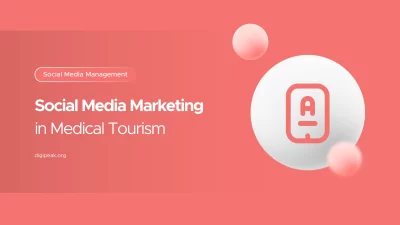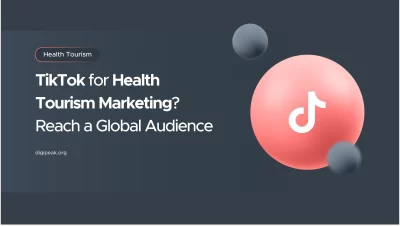
Social Media Marketing in Medical Tourism
In today’s digital age, social media has become an indispensable tool for businesses across industries. …
28/08/2023 -
7 dk okuma
Stay up to date with Peakers
The Instagram algorithm is often misunderstood, leading to various misconceptions among users. This article aims to shed light on these misconceptions and provide a clearer understanding of how the algorithm actually works.
By debunking common myths and exploring the logic behind the algorithm, we can gain insights into how our content is ranked and maximize our presence on the platform. So, let’s delve into the intricacies of the Instagram algorithm and uncover the truth behind its operations.

Many people assume that the Instagram algorithm solely prioritizes like counts. However, in reality, the algorithm is much more complex. While likes are indeed an important factor, the quality of the content, user engagement history, posting time, and other factors are also taken into account.
Some people think that likes and comments are the only factors in content ranking. However, the Instagram algorithm considers a broader perspective. In addition to interactions, factors such as content saves, responses to stories, profile visits, and other forms of engagement are also considered.
Many people think that hashtags are solely used to reach a broader audience. However, hashtags are also crucial for reaching a specific target audience and increasing engagement within a particular niche. Utilizing relevant and appropriate hashtags is an effective way to ensure your content reaches its intended audience.
Some individuals mistakenly believe that the Instagram algorithm solely focuses on follower count. However, follower count is just one factor among many.
The algorithm also evaluates user engagement history, content quality, and other relevant factors. Therefore, the quality and consistency of interactions are more important than follower counts.
There is a common belief that posting time determines the ranking of content. However, the Instagram algorithm takes into consideration not only posting time but also content quality and user engagement history. It is crucial to experiment and utilize follower analytics to determine the best posting times.
Some people believe that posting more frequently will automatically increase engagement. However, quality content and consistency are more important.
The algorithm prioritizes content quality and user engagement history. Posting too frequently may compromise the quality of your content and lead to a loss of interest from your audience.
Many individuals believe that only posts from accounts they follow are displayed. However, the Instagram algorithm also suggests posts that might be of interest to you, allowing you to explore a wider range of content and discover new accounts.
While the workings of the Instagram algorithm are complex, it is important to have accurate information and optimize your content accordingly.
Creating high-quality, engaging, and audience-targeted content is crucial for increasing interactions and achieving growth.

The Instagram algorithm is a set of factors and process logic that determine how users view their content. Content ranking is customized based on user interests and preferences and aims to improve the user experience. Here are some key points you should know about the Instagram algorithm:
Instagram ranks content based on users’ interests. The algorithm analyzes the accounts the user follows, likes, comments on, saves, and engages with. Based on this information, it presents the most interesting and relevant content to the user.
The algorithm pays attention to how much engagement content is received. Interactions such as likes, comments, saves, and shares reflect the popularity of the content and the interest of users. The more engagement the content receives, the wider the audience it will reach.
The algorithm prioritizes fresh and up-to-date content. New posts tend to be displayed higher in the user’s main feed. Therefore, it is important to share new content on a regular basis.
Hashtags allow content to reach relevant audiences. Using the right and relevant hashtags ensures that content is discovered and gets more engagement. It is especially important to use popular and relevant hashtags.
Image quality is important for content to attract attention. High-resolution, aesthetic, and engaging images and videos attract users’ attention and get more engagement.
The algorithm also takes into account how long users view the content. It is important that the content adds value to the user and is engaging. Prolonged engagement leads to a higher ranking of the content.
As a result, the Instagram algorithm works in a complex way to enhance the user experience and deliver the most engaging content.
Content creators must produce high-quality content that will engage users and implement the right strategies to increase engagement.
Understanding how the algorithm works will help you optimize your content and get more visibility on Instagram.

Instagram is currently testing new notifications to assist creators in understanding when the reach of their Reel might be limited due to a watermark, and they plan to expand this feature as they discover its effectiveness.
This indicates that the algorithms are trained to detect elements such as watermarks and potentially even filters in videos.
However, this doesn’t mean you have to start from scratch every time you want to publish on a short-form platform. Instead, consider which platform holds the highest priority, create your content there, and then distribute it across other platforms.
Instagram offers a variety of features and encourages creators to make the most of them.
For instance, using tagged locations in your in-feed posts is one of the signals that the algorithm considers when ranking content. Additionally, the Reels algorithm is more likely to notice and amplify videos that use trending audio.
Moreover, the inclusion of relevant hashtags can also impact how your content is ranked. Therefore, make use of the in-app editing tools, especially if Instagram is your primary platform.
Experiment with filters, explore features like the in-app green screen and provide any relevant information that can boost the visibility of your post.
You can also leverage Instagram’s collaboration feature to collaborate with or highlight other creators and accounts, capitalizing on each other’s audiences and benefiting from the algorithmic boost.
One aspect you don’t need to worry about is whether your account is labeled as a Creator or Business account since this does not affect your ranking, according to Instagram.
While this updated understanding of the Instagram algorithm(s) is exciting, it’s merely a temporary trend for most creators. Instead of attempting to cater to the algorithm’s preferences, focus on creating content that resonates with your audience.
Rather than trying to predict which content the algorithm will prioritize, experiment with different formats and analyze your Instagram analytics to identify broad trends.
This will help you gauge the effectiveness of your content based on your audience’s interactions. Additionally, the more engagement you generate on the content you genuinely enjoy creating, the higher your chances of achieving growth.
At Digipeak Agency, a qualified social media agency, and 360-degree digital marketing agency, our expert social media team is here to support you in navigating the Instagram algorithm and achieving your goals. We are dedicated to helping you maximize your presence on the platform and drive meaningful results. Contact us today and let our expertise empower your Instagram success.
Get an Offer


Join Us So You Don't
Miss Out on Digital Marketing News!
Join the Digipeak Newsletter.
Related Posts

In today’s digital age, social media has become an indispensable tool for businesses across industries. …

In recent years, health tourism has grown into a thriving industry, attracting people worldwide in …

Social media is now practically essential for every sector. The healthcare sector too falls in …

Our world is becoming more and more centered around mobile applications. With millions of apps …